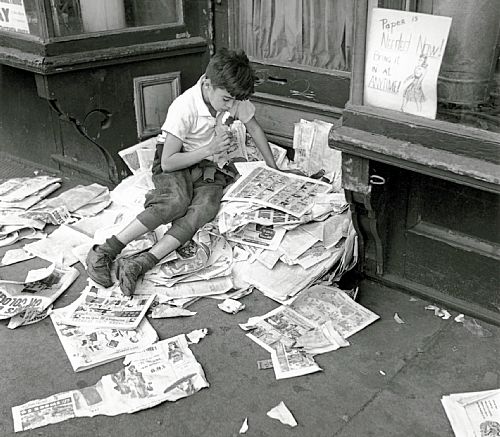The Encyclopedia Britannica announced on Tuesday that the 2010 edition was the last print edition. They would not be printing any more. After 244 years, the mother of all encyclopedias decided that that a better business model would be to move to an online-only version.
(See New York Times report). They were not selling well: there were 4,000 editions of the 2010 edition that were still in the warehouse (unsold) and perhaps many more at distributors all over the world.
It pained me to read that suddenly the staple of many libraries and many homes will cease to be. Market forces had triumphed and Schumpeterian 'creative destruction' has triumphed. It represented a whole world for many of us. Whether you were a reader or not, there was something magnificent about just seeing those bound editions on a shelf. (A more magnificent experience was experienced on reading them).
We did not own the Britannica while growing up. It is and was very expensive. Instead our Dad got us another set - Grolier's - which we used so much that the plastic covers tore from the frequent removal, and putting it back, or not putting it back, leaving it open in the midst of things. My father was actually very proud that they looked so worn and used over the years. He liked to joke about people who also had such bound editions of encyclopedias gracing their living room, but in such pristine shape that "they could not be possibly be read more than a few times".
The Encyclopedia Brittanica was not so common in people's homes in India (It was mostly the World Book who had a team of dedicated franchisees). I cannot recall anyone possessing an edition. You would find it libraries everywhere. There was always an aspirational quality associated with it. My Dad and I often talked about replacing our set with it. We never did.
I did have access to it. The Encyclopedia Britannica was kept in a special metal cabinet at the Poona Club Library. The editions were somewhat old, but they were placed in a prominent spot by the entrance. It had the effect of a jewel-case - they were seen by everybody who walked in, they were always locked up and you needed to ask the librarian special permission to access the volumes. They could not be checked out. They could be read in the library only. I used it for special school projects and essays that I needed to write. But, that wasn't the main reason. I did it mostly because I had a good reason to walk up to the librarian and ask for the keys. As a precocious 12-yr old I wanted to show up the adults and thumb my nose at their 'lowly' tastes as they read magazines at the reading table. Here I was carrying this gigantic brown-leather volume of the Britannica, then noisily going through those light, translucent pages with the smell of volumes that had lain there for too long, and then I took notes. A real serious reader and scholar in their midst.
A few months ago, I decided to stop being so stingy and donated a substantial amount to the Wikipedia foundation. I have spent hours and hours on their website looking up the most arcane, mundane, or insane subjects. Oddly, the so-called 'Britannica-killer' also needs $$$ to survive. A fact that makes you think everything that is good cannot be free, or that you can live off the charity of others forever. Wikipedia is a great idea. It has made access to information more or less democratic (provided you have an internet connection). I am all for that. But, I am also for the older version.
True that HTML links are easy to click, words and things are easy to find. You could be reading an article and if you wanted to know something you were a tab and a few keystrokes away. The information online is more updated and there is a lot more of it. All true. But there is something else to old media - books, newspapers, dictionaries and the encyclopedia. You get lost more often, you take time to find something that you were looking for. In passing, you read a lot more words, learn a lot more things than a goal-direction search. Besides, there is the sheer physicality of of it. Turning pages, holding the spine, carrying all that weight of words and knowledge ... our ideas and knowledge are not as abstract as we think them to be. There is nothing more alive, living and breathing than an actual sheet of paper with words on it (This computer won't understand).
Yes, I have ordered the last set.
Update:
Today, I received a call from the distributor that they cannot fulfill my order given the overwhelming response. He said that they received 100 orders within 2 hours after the story broke (I presume on the NYT website). Apparently, antique collectors, other bibliophiles (like myself) suddenly woke up and decided to order that last edition. He thinks that this is not going to be valuable. Perhaps not. It's not the reason why many of wanted to buy it. On parting he wanted to bribe me with a DVD for 2012 for me not to leave negative feedback on Amazon.


